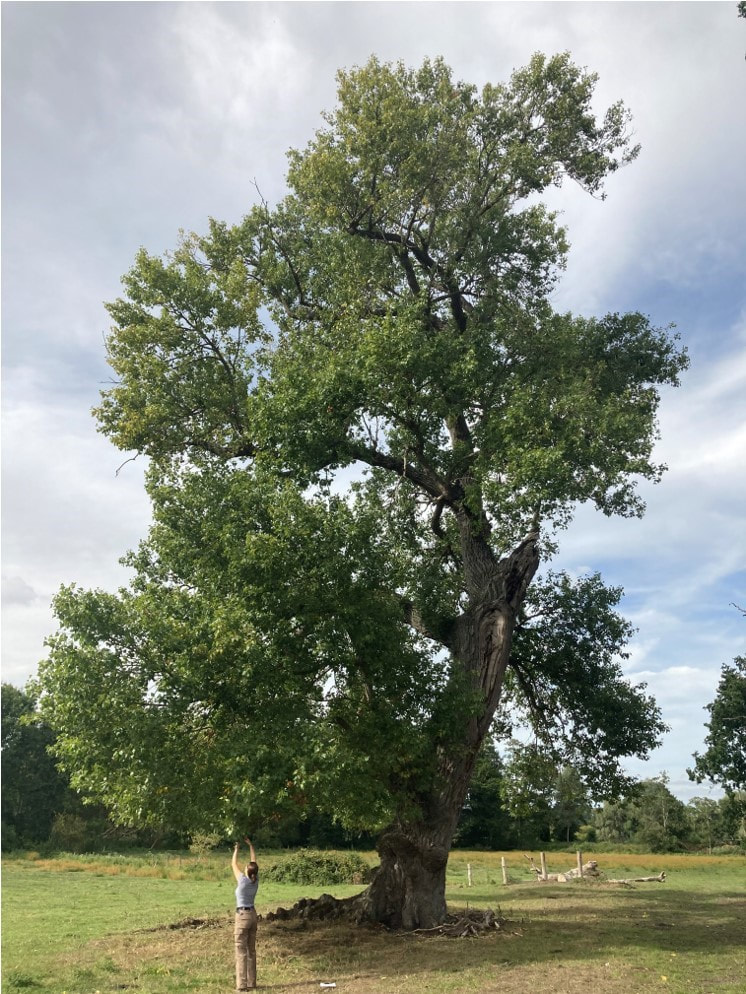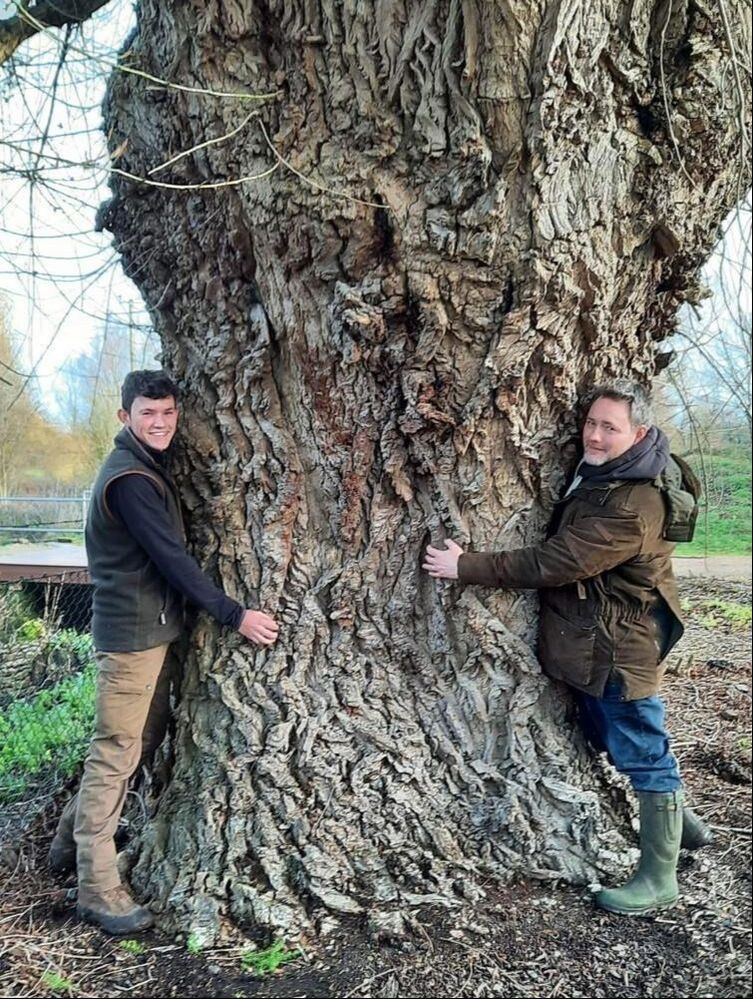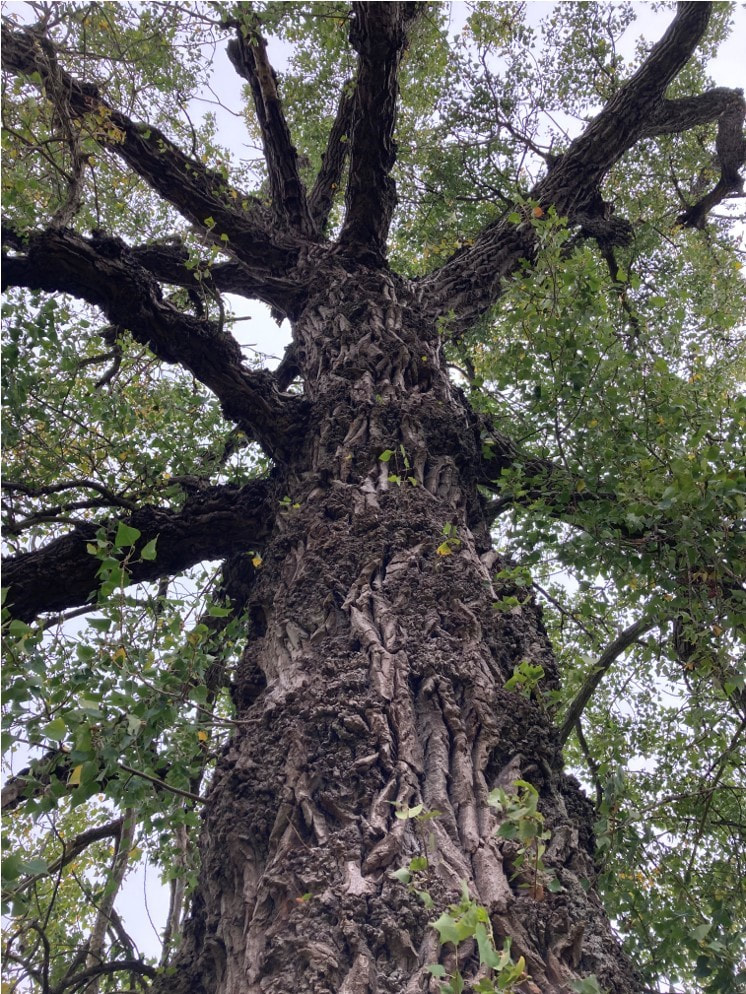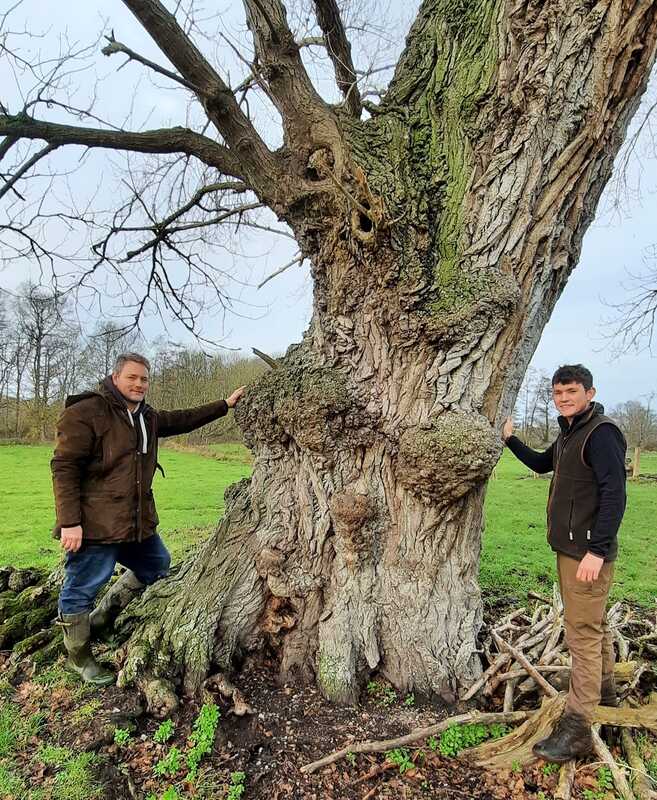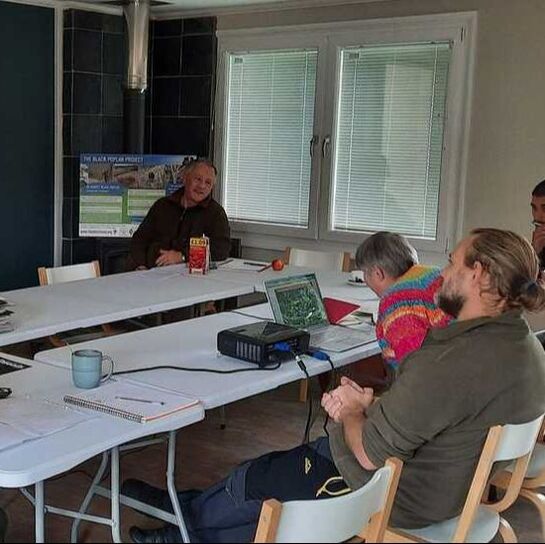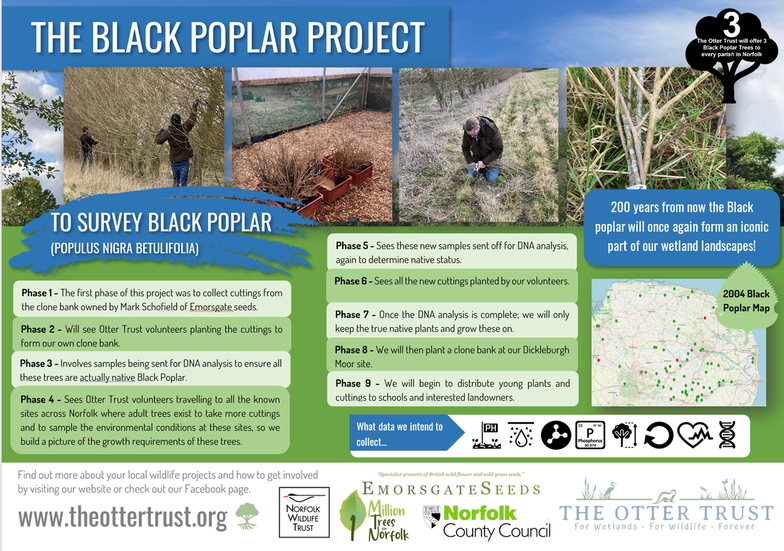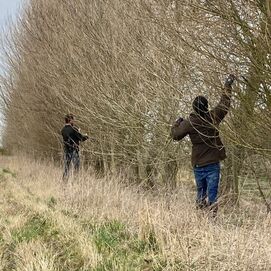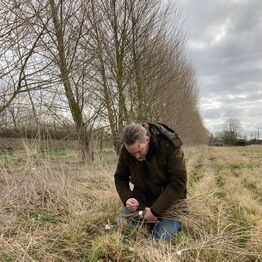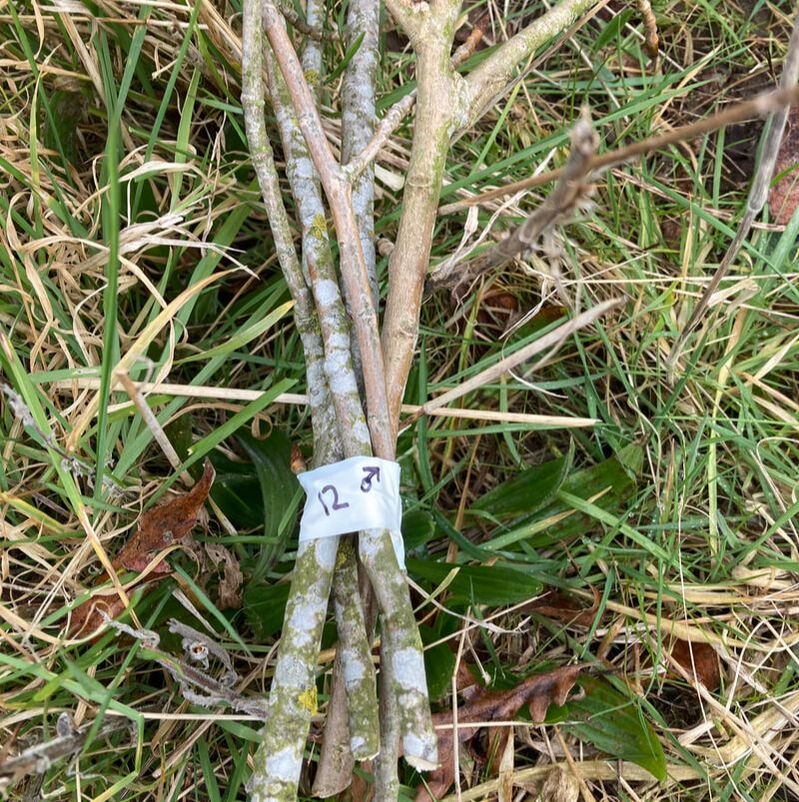|
BLACK POPLAR PROJECTS
|
The Otter Trust's Black Poplar project aims to conserve the native population of Black Poplar trees in Norfolk (UK). The Black Poplar is our rarest native tree and should be planted as a conservation priority.
|
our project
The Black Poplar is a wetland species that has declined due to land drainage and historical agricultural prejudice. With an estimated 60-80 trees left in the county, we aim to DNA all existing heritage trees and propagate from these, distributing surplus young trees to individuals and organisations across Norfolk. We will also be planting a 'clone bank' at our Dickleburgh site to ensure the ongoing survival of each of the individual Norfolk trees.
Black Poplar Trees Norfolk
|
|
We have a new project that aims to conserve the native population of Black Poplar trees in Norfolk (UK). The Black Poplar is a wetland species that has declined due to land drainage and historical agricultural prejudice. With an estimated 60-80 trees left in the county, we aim to DNA all existing heritage trees and propagate from these, distributing surplus young trees to individuals and organisations across Norfolk. We will also be planting a 'clone bank' at our Dickleburgh site to ensure the ongoing survival of each of the individual Norfolk trees.
|
Funding
|
We would like to thank Essex & Suffolk Water for funding our Essex Black Poplar Working Group. Working with partners including Essex & Suffolk Water, The Woodland Trust, Essex County Council and the Forestry Commission, we aim to propagate native Black Poplar trees and distribute these to landowners across Essex (UK). The Black Poplar is the rarest native tree in Britain. Traditionally associated with wetlands, the native trees have often be replaced with hybrid Poplar or Willow.
This project has been funded by Norfolk County Council and managed by Ben Grief and Cecily Bradbury on behalf of The Otter Trust. Please email: [email protected] to register interest. |
|
Free Black Poplar Trees for South Norfolk
|
We have completed our DNA testing of Black Poplar trees in Norfolk and we can start distributing free trees to riparian landowners. Planting trees along rivers, streams and ditches can absorb extra water and mitigate flooding. The Black Poplar is our rarest native tree and should be planted as a conservation priority. Our trees are available from January 2023, are DNA tested, of Norfolk provenance and are offered freely to anyone with a suitable site. The first batch of trees are available to plant in South Norfolk, further batches will be available for the rest of Norfolk in Autumn 2023. Please email: [email protected] to register interest.
|
propagated batch of Black Poplar Trees
|
Our team have started to propagate the 2023 batch of 'Norfolk' Black Poplar Trees. These are the first 96 cuttings from the only clone 45 trees in Norfolk. The original tree grew in a wet spot on the edge of a private woodland, thankfully the landowner had the foresight to plant some cuttings on adjoining land at Hardwick (Norfolk, UK) as the original tree has now died. The Black Poplar is the rarest native UK tree and traditionally grew on wetland sites across the country. Working with a wide selection of partners, The Otter Trust are propagating pure trees and distributing these to responsible landowners.
|
Black poplar project in the news
|
The Eastern Daily Press has published an article today featuring our work with Black Poplar trees in Norfolk, stating that only 2 trees exist in the county. The news feature was actually supposed to highlight our work and the fact that of the existing trees in Norfolk, 2 in South Norfolk (Hardwick and Tibenham) are of particularly rare clones.
Our team have DNA tested approximately 80 Black Poplar trees across Norfolk, with the aim of identifying and propagating the rare clones to ensure that genetic variation exists within the regional trees population. Thankyou to everyone who has emailed to tell us that more than two Black Poplar trees exist in the county, we are aware that the EDP article was slightly misleading in relation to the number of pure trees in Norfolk, this was a journalistic error on their behalf. |
East Anglian Black Poplar working group
|
We hosted the East Anglian Black Poplar working group meeting. Our staff and volunteers have taken samples from all of the pure Norfolk trees and are awaiting the remaining DNA results. We have also planted over 1000 cuttings, taken from the 78 'known' trees and aim to produce a further 5000 trees over the next few years to distribute throughout Norfolk.
Working in partnership with Norfolk, Essex and Suffolk County Council, The Woodland Trust, Suffolk Tree Wardens, Ministry of Defence Suffolk Biodiversity Information Service, The Forestry Commission and Essex & Suffolk Water we aim to restore this rare native tree to the catchments of the regions rivers. |
Black Poplar Project phases
|
The black poplar Populus nigra has been identified by the Forestry Commission as the rarest hardwood tree in Britain with only around 7000 trees remaining, which may have dropped since the 2004 census. Black poplar is a very large tree capable of reaching 30 metres in height with a canopy span of 20 metres.
The favoured habitat of the black poplar is wet (carr) woodland along lowland river valleys and floodplains. The tree is dioecious (male and female reproductive organs on separate trees.) and as such requires both sexes to produce viable seed. A great deal of work has been done on the genetic diversity of these trees and the British sub species Populus nigra betulifolia has been found to have the least diversity of any European sub-species. The Otter Trust is bringing this tree back! Phase 1 - The first phase of this project was to collect cuttings from the clone bank owned by Mark Schofield of Emorsgate seeds. Phase 2 - Will see Otter Trust volunteers planting the cuttings to form our own clone bank. Phase 3 - Involves samples being sent for DNA analysis to ensure all these trees are actually native Black Poplar. Phase 4 - Sees Otter Trust volunteers travelling to all the known sites across Norfolk where adult trees exist to take more cuttings and to sample the environmental conditions at these sites so we build a picture of the growth requirements of these trees. Phase 5 - Sees these new samples sent off for DNA analysis, again to determine native status. Phase 6 - Sees all the new cuttings planted by our volunteers. Phase 7 - Once the DNA analysis is complete we will only keep the true native plants and grow these on. Phase 8 - We will then plant a clone bank at our Dickleburgh Moor site. Phase 9 - We will begin to distribute young plants and cuttings to schools and interested landowners. Phase 10 - 200 years from now the Black poplar will once again form an iconic part of our wetland landscapes! |
latest news
29.o4.2024Three new Black Poplar trees have been added to our collection. We would like to thank our colleagues from the National Trust (Plant Conservation Department) and Royal Botanic Garden Kew (Wakehurst Propagation Team) for the new trees. Two are cuttings from trees in Bedfordshire and one is the result of some seedling trials. These will be added to our collection at Dickleburgh Moor Nature Reserve
|
07.04.2024We would like to thank Norfolk County Council and Defra for supporting the creation of our new Waveney Valley Community Tree Nursery. Our priority will be to grow native Black Poplar (Populus nigra ssp betuliafolia) for our regional wetlands projects, using our Dickleburgh Moor Nature Reserve clone bank to harvest cuttings. Alongside the poplars we will also be growing other native trees from the region, donating all surplus trees to community groups and our associated organisations.
Picture of the first batch if materials arriving! |
20.02.2024This afternoon we joined colleagues from the Suffolk Tree Wardens and West Suffolk Council to visit the Black Poplar Clone Bank at Nowton Park in Bury St Edmunds. The Black Poplar collection at Nowton is being refreshed, with new trees being added and some being thinned out. These trees are grown to produce propagation material, that enables the Nowton team to produce 300 saplings each year, that are distributed across Suffolk.
|





